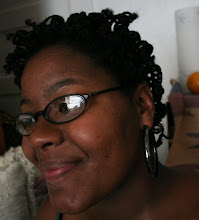So there are many stages of culture shock. When we embarked on this journey they told us all about the many things that we were likely to feel and experience while living abroad. I think I have just successfully emerged from the “these people” stage of culture shock. This is the stage when you are essentially your angriest (and if you know me, you probably know that this isn’t very angry compared to the average person). This stage consists of lots of complaints and frustrations with the country and people, hence the phrase “these people.”
Overall, there isn’t a lot for me to complain about, I am truly living a great life here. But hey that’s what people are apt to do, we find things to complain about. The one thing that I can complain about is the language and all its glorious barriers. As I’m sure I’ve mentioned before, Thai is a tonal language. The same word can have 5 different meanings depending on whether it’s said with a high, low, flat, ascending, or descending tone. The sentence “new wood doesn’t burn does it?” can be said using only one word. It’s really ridiculous. And as a foreigner, new to tones, the differences seem nonexistent to me. So when attempting to speak Thai I get a lot of crazy looks. Trying to order my dessert without (sweetened condensed) milk, I might be asking for my dessert to come with sagging breasts. Discussing water buffalo I might end up talking about a penis. Trying to call a child beautiful, I might call him or her unlucky. It sounds funny, and afterwards it most certainly is, but during such a slip up, you just seem like a moron.
The other problem with learning Thai is that because there are so few foreigners in
The other thing I like to complain about (that I really do appreciate being a part of despite the extra work) are all the English competitions that my students participate in. Thai people really like competing. They have all kinds of educational competitions: science math, computers, etc. But they take it to another level and they have competitions where the students are dressed like Jane Fonda and are doing workouts on stage, it’s really awesome. My kids are most often part of English competitions. At the beginning of the year I taught my kids the play Snow White. We have now performed it at two different competitions and have won 2nd and 1st place. I’m quite proud. Additionally the kids are part of spelling bees, speaking competitions, and general knowledge quizzes where they ask questions like “Which country is the biggest exporter of coffee.” It means lots of preparation from the teachers and driving hours to competitions in many different provinces, but the students like being involved so it’s all worth it.
The Queen and her magic mirror





1 comment:
Which 5 did you keep?
Post a Comment